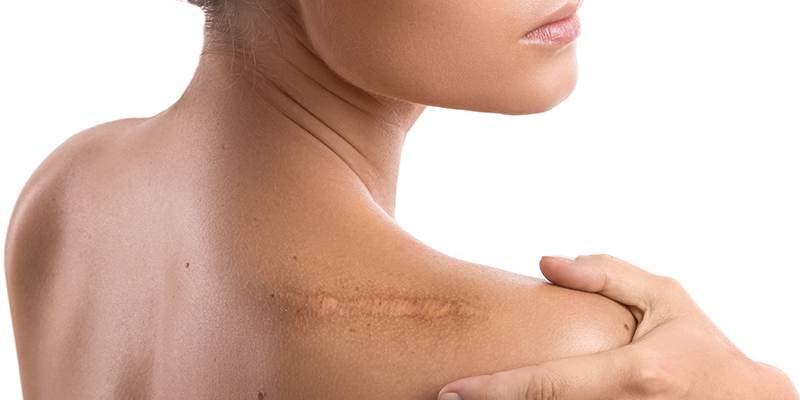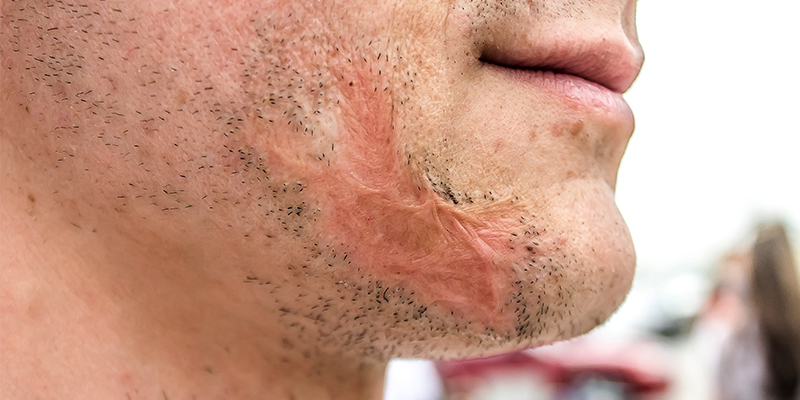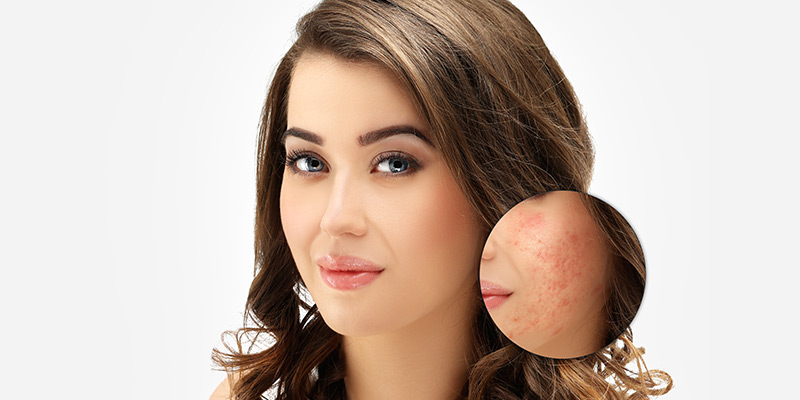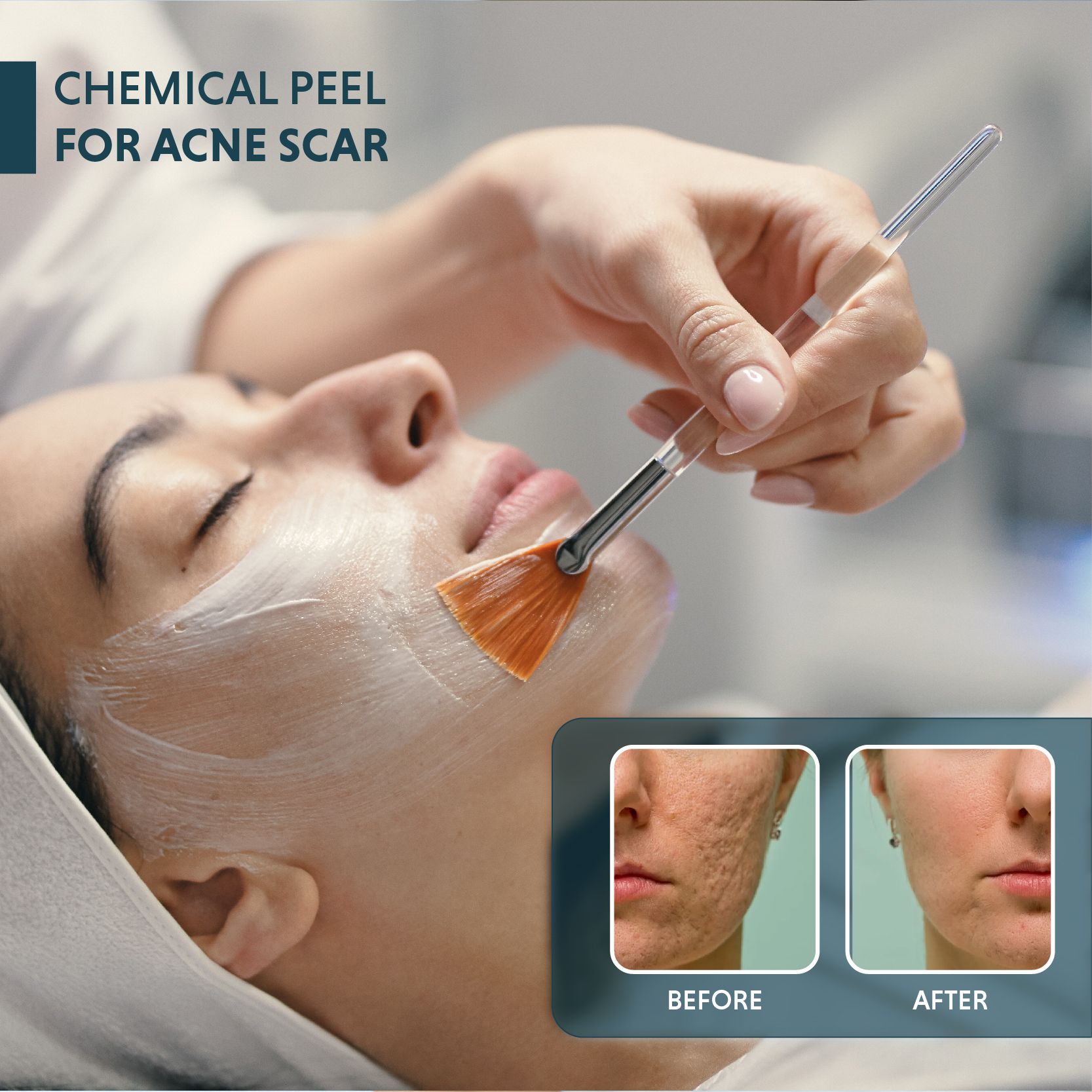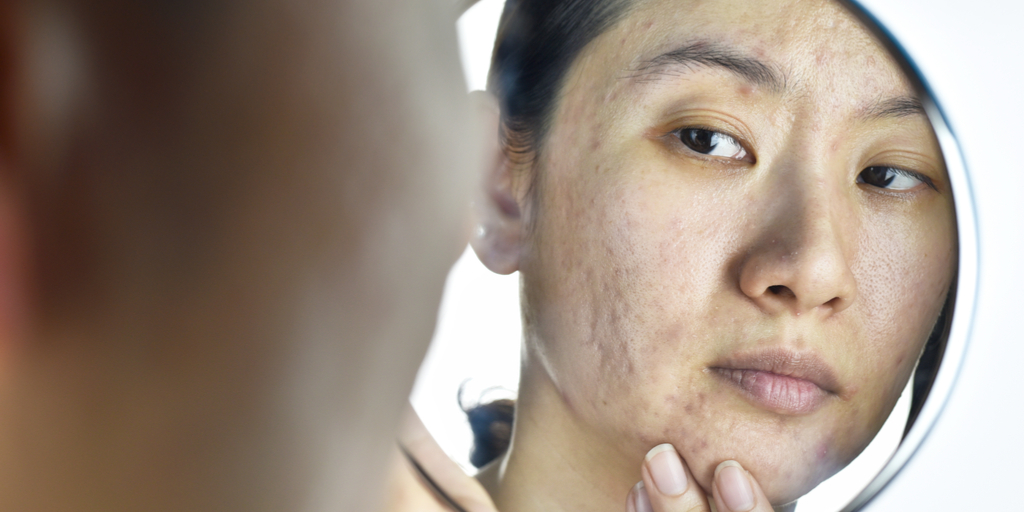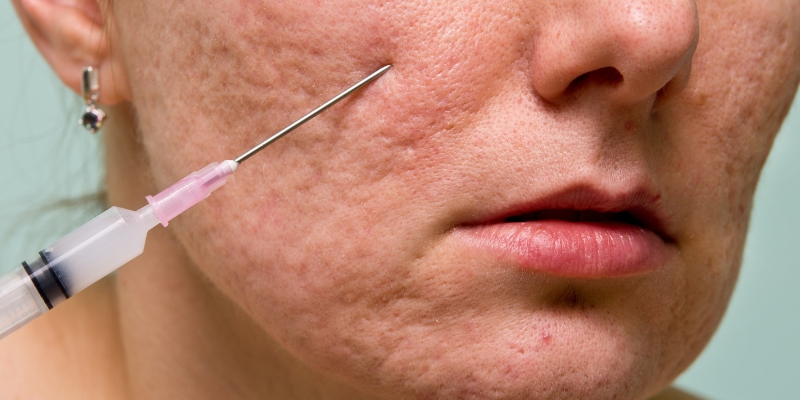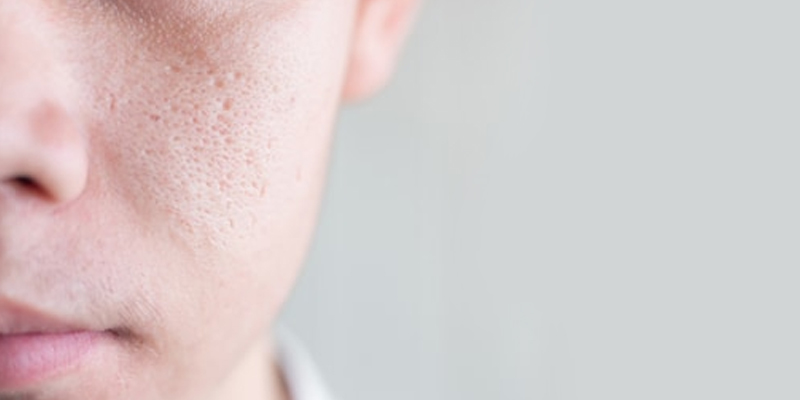How To Remove Wound Scars?
Major accidents, surgery, or just a minor cut can leave scars. While wounds heal but scars remain; you can choose to conceal it, but the truth is that they refuse to go away if left untreated. These scars may become an aesthetic concern for some of us, and one may seek treatment to get rid of them. Read on to know more about how to treat wound scars permanently.
What Are The Causes Of Wound And Cut Scars?
A wound is a physical injury to the body that occurs secondary to skin damage. Cuts, acne, burns, certain infections, are some of the leading causes of wound formation on face. Paper cuts, injuries, self-harm, stabbing, surgery are examples of cut scars. Scars are a result of wound healing.
Must Read: How To Get Rid Of Old Stitch Marks From Face?
How To Remove Wound Scars From Face?
Many different reasons cause wounds followed by scars on the face. There are a few wound scar removal treatments that can minimise the appearance of these scars and even get rid of them completely. To get flawless skin, learn how these treatment methods can help minimise wound scars from the face:
- Laser Skin Resurfacing: If you wish to know how to get rid of cut scars, then you should consult a dermatologist about laser resurfacing. This is an effective treatment for wound scar removal. Laser resurfacing helps in painlessly minimising the appearance of scars using light beams to create controlled micro-injuries, which stimulate the collagen production in the deeper layers of the scarred tissue. It helps in rejuvenating the skin and giving it a youthful radiance.
- Chemical Peeling: This is an accelerated form of exfoliation, recommended due to its high success rate. Chemical peeling can give the desired results if the scars are not deep. This treatment method involves the application of a plant-based extract for controlled exfoliation of the damaged layers. It helps in promoting skin rejuvenation. Three types of peels, namely, superficial, medium, or deep, are available at reputed skin clinics depending on the concentration of the solution and the duration of application. A dermatologist is the best person to recommend the suitable peel for you depending on the nature of scar and type of skin.
- Micro-needling Radiofrequency: Micro-needling is one of the most popular modalities to treat wound scars. The method involves the use of radiofrequency energy to heat the deeper layers of scarred skin and induce collagen and elastin production. This wound scar treatment can reduce sunken scars without any recovery time.
- Filler Injections: This is a minimally invasive treatment for reducing the depressed scars on the face. Dermatologists inject fillers into the skin to raise the scars and give you a smooth skin texture. However, the effects of filler are temporary as the skin gradually absorbs it.
- Steroid Injections: This is another minimally invasive yet highly effective treatment for raised scars. The dermatologist injects steroids in the skin to reduce the size of the scar and decrease its appearance. Sometimes, dermatologists may inject collagen directly to get immediate results.
- Dermabrasion: You may use this technique to remove scars on the face. In this procedure, one can use specially designed tools to puncture the scar tissue. A dermabrasion tool has sharp edges to exfoliate the surface of the skin gently. Along with dead cells, it also helps get rid of the scarred tissues. This is an obsolete method as it involves a significant downtime and high risk of side-effects.
- Punch Grafting: Doctors recommend this method to heal deep scars on the face and other body parts. During the procedure, your dermatologist may procure healthy skin from a donor area (like the back of the earlobes) and insert it into (punched into) the affected areas. While this treatment might leave a minor mark, it is mostly smoother and smaller than the original wound scar.
- Surgery: Some scars are complex and may need excision or revision using skin grafts. There are different kinds of scar revision techniques that plastic surgeons perform, depending on the type, size and severity of the scar. Doctors carefully excise the scarred tissue after creating the incision. Mostly, a layered wound repair approach helps shrink the overall appearance of the scar. Dermatologists select the suture size and needles wisely to minimise the mark. The extensive procedure doesn’t help get rid of the scar entirely but decreases its overall visibility.
Must Read: How To Remove Accident Scars From Face?
Is Scar Removal Cream Effective?
Scar removal creams or ointments typically help in fading the scar and making it look less noticeable. They work by speeding up the scar lightening process but do not help in making it disappear completely. Unsupervised and prolonged use of such scar creams may cause significant side-effects like discolouration of the skin. Additionally, scar removal cream may or may not work for a specific type of scar.
Customised treatments are available at reputed skin clinics based on the type and severity of the wound scar. These advanced treatment options have medically proven safety and efficacy. They involve the use of the latest technology to provide visible results with less downtime. It is best to consult a dermatologist and learn about the suitable treatment option for minimising your wound scar.
How To Prevent Wounds And Cuts From Scarring?
You can follow the below simple self-care tips to preventing scarring after injury:
- Always keep your wound or injury clean by washing it with water and mild soap to prevent infections.
- Cover the injury with a bandage or silicone sheets to prevent it from getting itchy or deep.
- Avoid scratching the scar until the wound heals completely.
- Use antibacterial creams and antibiotics prescribed by a dermatologist.
- Seek immediate advice of a dermatologist in case the wound is deep to avoid scarring.
- Avoid the use of home remedies for the removal of wound scars as they may worsen them.
Now you know about the various treatment options available to reduce wound scars. Visit your nearest Oliva Skin & Hair Clinic to seek the advice of an experienced dermatologist and know the best procedure for alleviating your injury mark.






